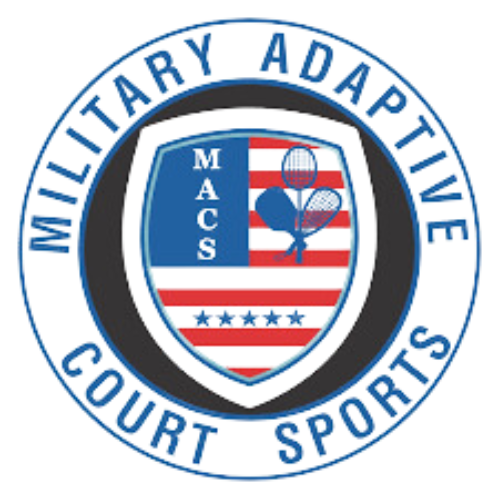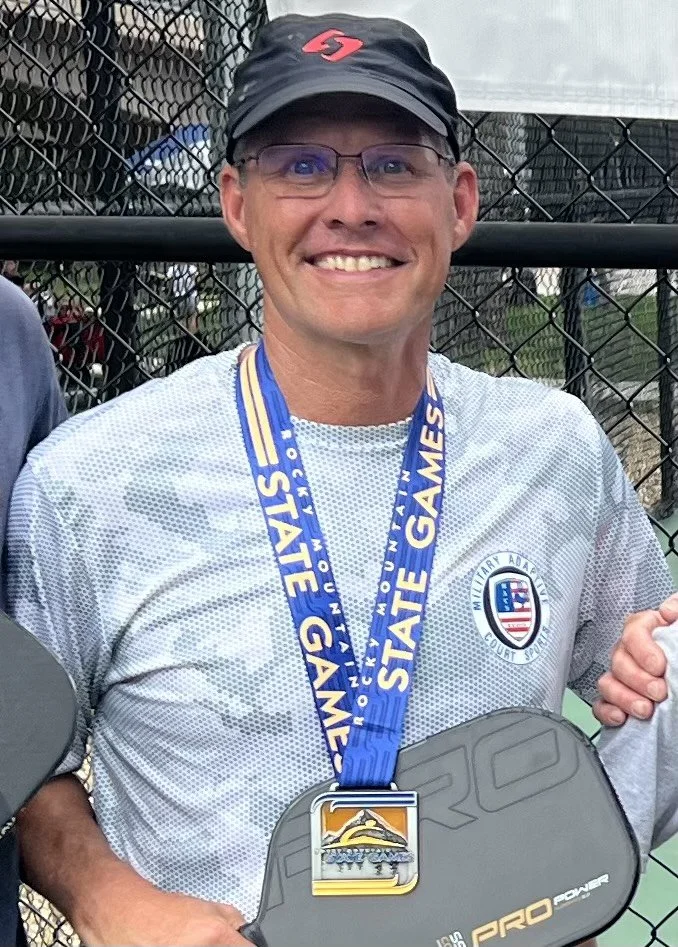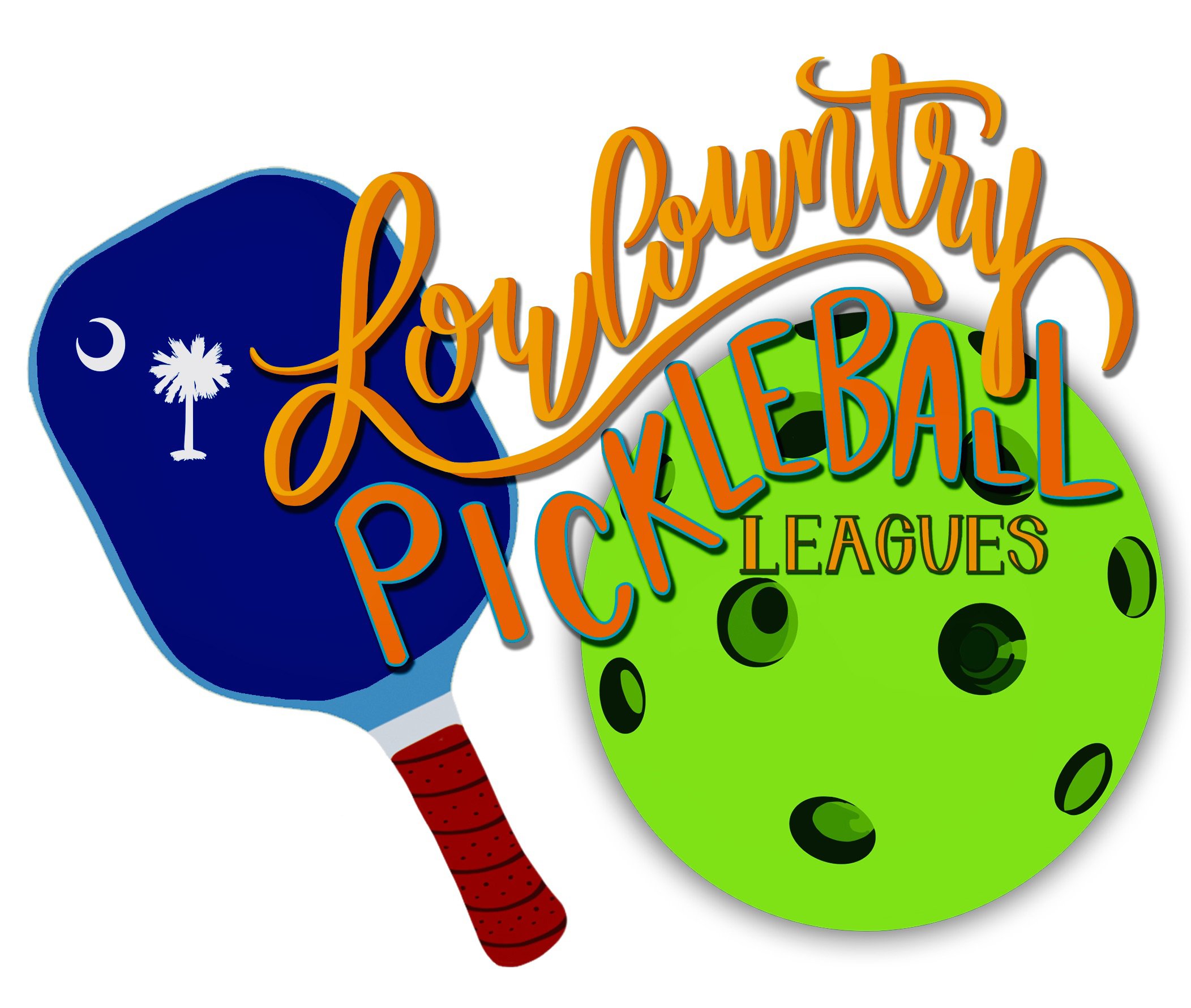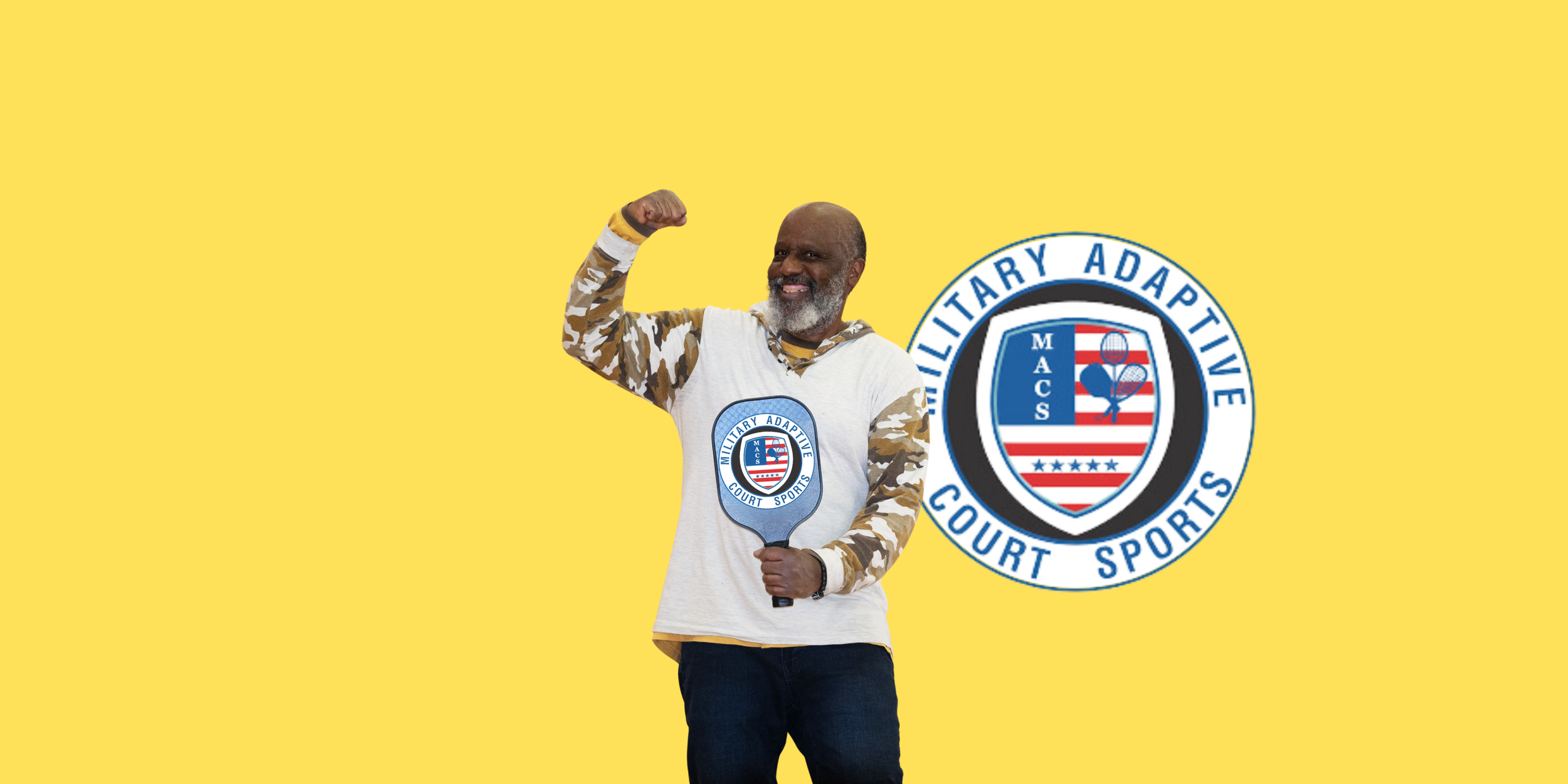
Pickleball
Pickleball program was added as an adaptive sport to keep with the inclusive nature of the organization. It is a simple paddle game played with a baseball-sized wiffleball over a tennis-type net on a Badminton-sized court. Over 1,800 players have graduated from the program and have used the sport to integrate back into society. Pickleball can enhance self-confidence and self-efficacy.
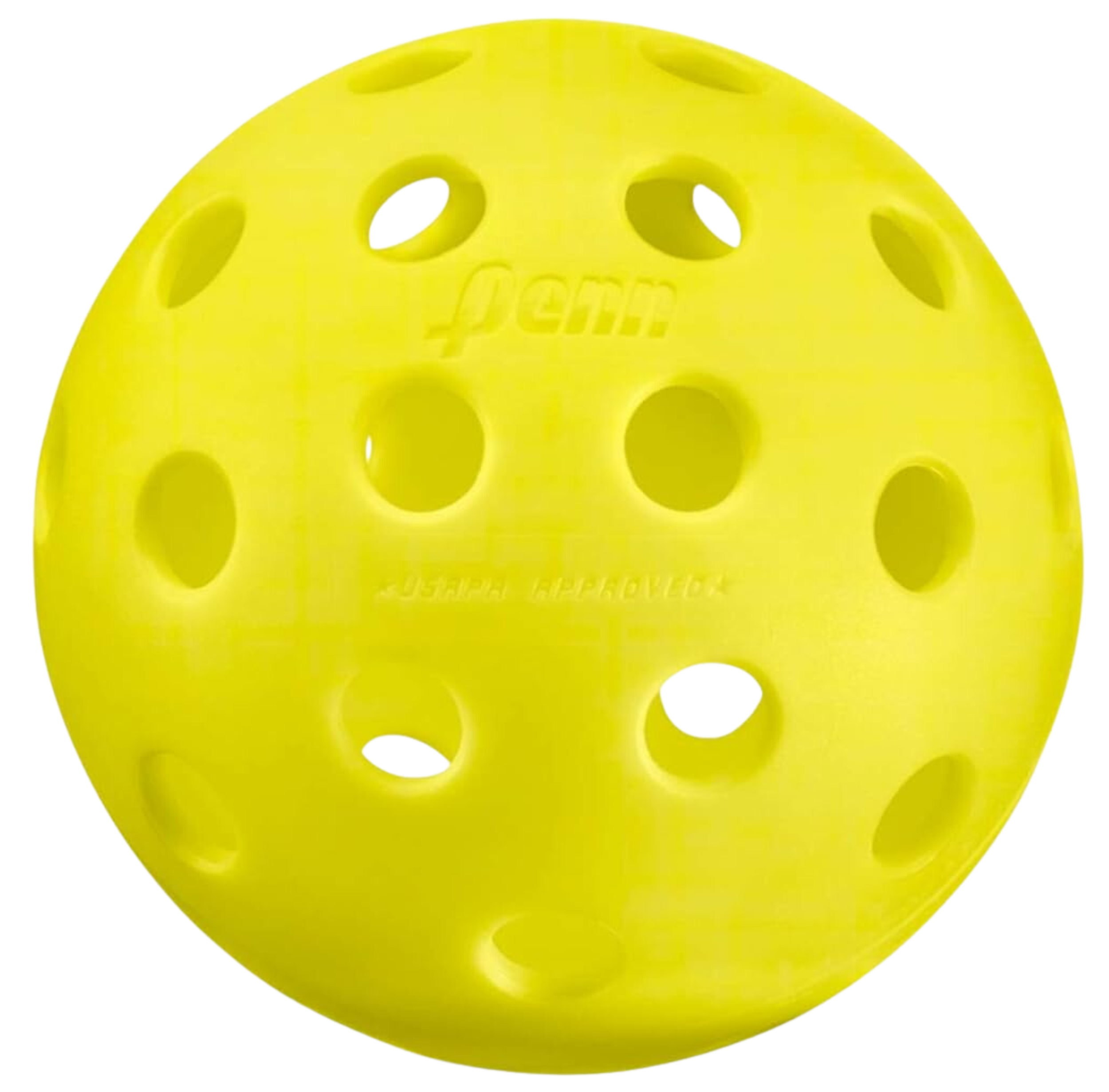
All About Pickleball
Brief History of Pickleball
Experience the origins of pickleball, a sport born in 1965 on Bainbridge Island, Washington, by Joel Pritchard, Bill Bell, and Barney McCallum. Originally conceived as a means to entertain their children with improvised equipment, pickleball swiftly evolved into an engaging adult pastime, marked by lively debates over rules and scoring. From its humble beginnings to global recognition, pickleball has flourished, with the establishment of the first permanent court in 1967 and the formation of the USA Pickleball Association in 1984, solidifying its place as a beloved sport worldwide.
Is Pickleball popular?
Pickleball's popularity has soared globally, with approximately 70 countries joining the International Federation of Pickleball, and discussions are underway to introduce it as a demonstration sport in the 2028 Olympic Games. In response to the increasing demand, the United States is witnessing a surge in court construction and conversions, with various venues embracing the sport. Currently, there are over 10,000 locations to play pickleball across the nation, with new venues continually being added, highlighting the sport's enduring appeal.
Potential Benefits of Playing Pickleball
Discover the potential benefits of pickleball, backed by research and player testimonials. Not only does pickleball offer a fun way to stay active, but studies suggest it can also contribute to improved mental health by reducing levels of depression and enhancing cognitive performance. Physically, pickleball promotes better hand-eye coordination, agility, muscle strength, and cardiovascular fitness, making it a holistic activity for overall well-being.
How would I play if in a wheelchair or not able to move as well?
If you're in a wheelchair or have limited mobility, pickleball can still be enjoyed through adaptive equipment and court modifications. Customized paddles, lightweight balls with auditory cues, and court adjustments can make the game accessible to individuals with varying abilities. Pickleball's low-impact nature and adaptable pace accommodate players at their comfort level, minimizing stress on joints and muscles while offering cardiovascular benefits. Regular play not only enhances heart health and circulation but also improves strength, flexibility, and coordination, making pickleball an inclusive and beneficial activity for all.
How to Play Pickleball
Playing pickleball involves either singles or doubles matches on a court of the same size, with slight variations in rules for serving and scoring between the two formats. The game begins with a player serving the ball diagonally into the opponent's service court, and rallies continue until a point is scored. Points are only earned by the serving team, with games typically played to 11 points, requiring a two-point lead for victory. A key feature is the "kitchen," a no-volley zone 7 feet from the net, where volleying is prohibited. While tournament play often consists of three-game matches, informal games can be adapted to various formats depending on player preference.
Reach out to Join the Community!
We have a sports clinics with coaches that are ready to support you!

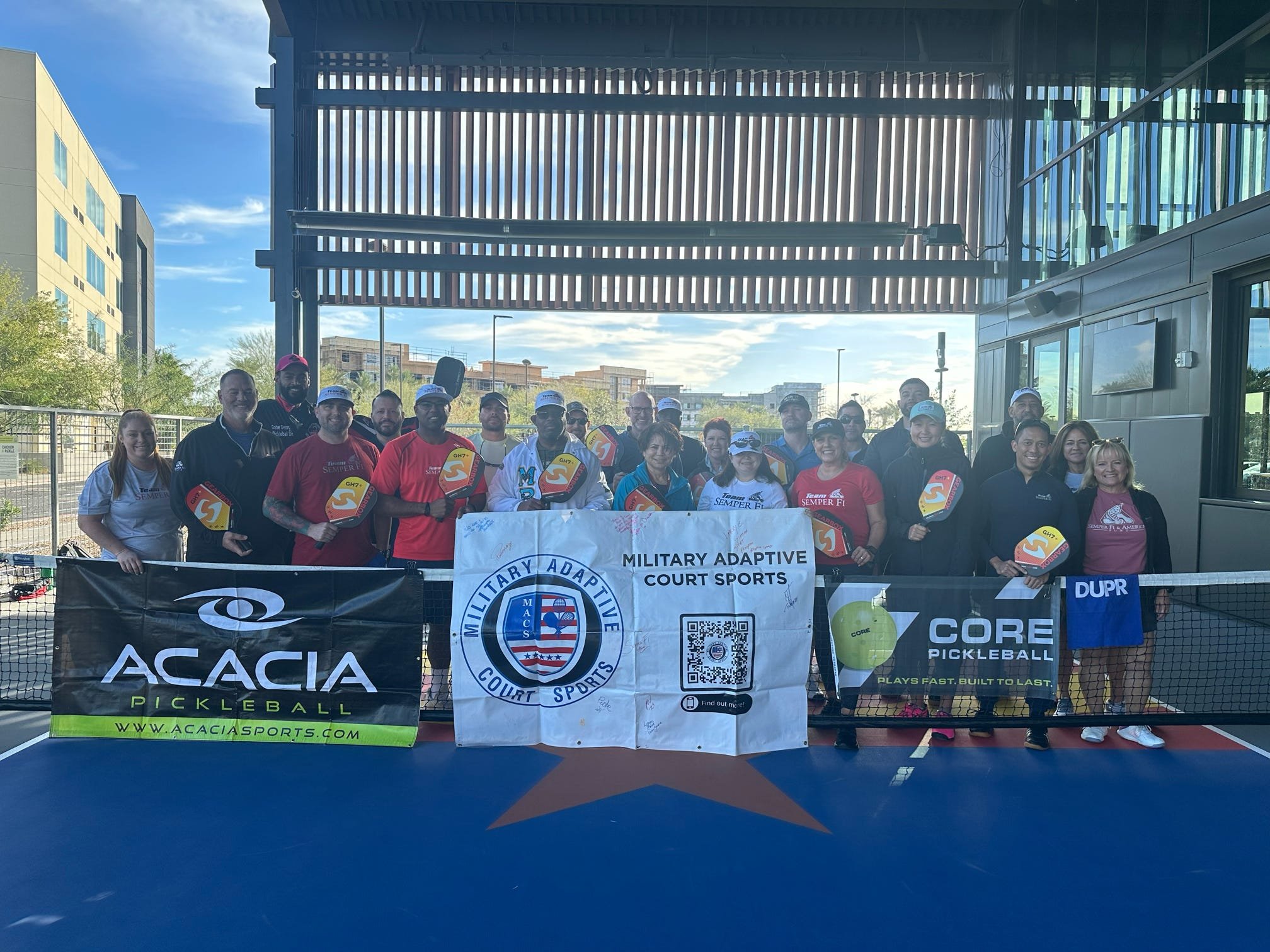
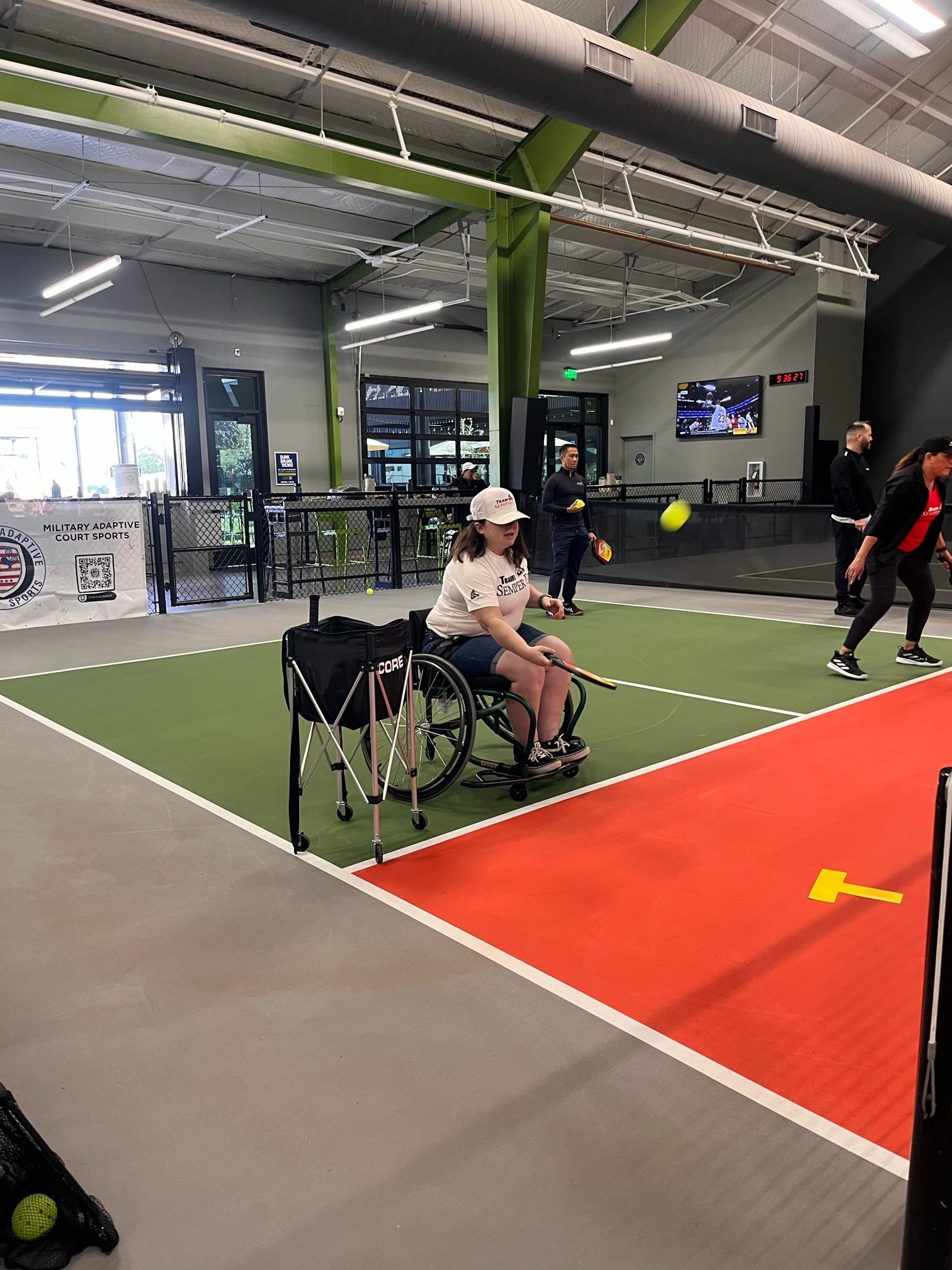
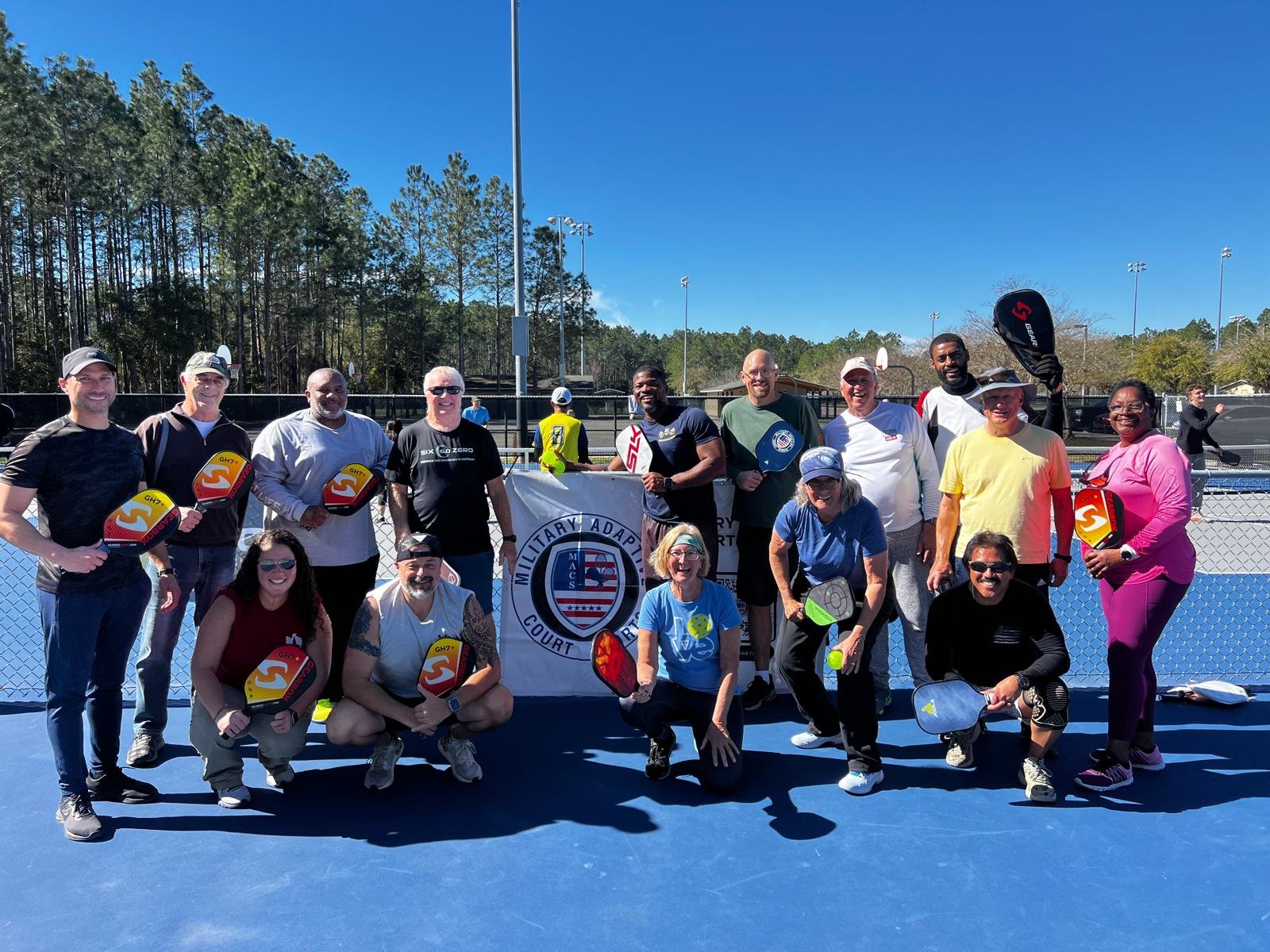
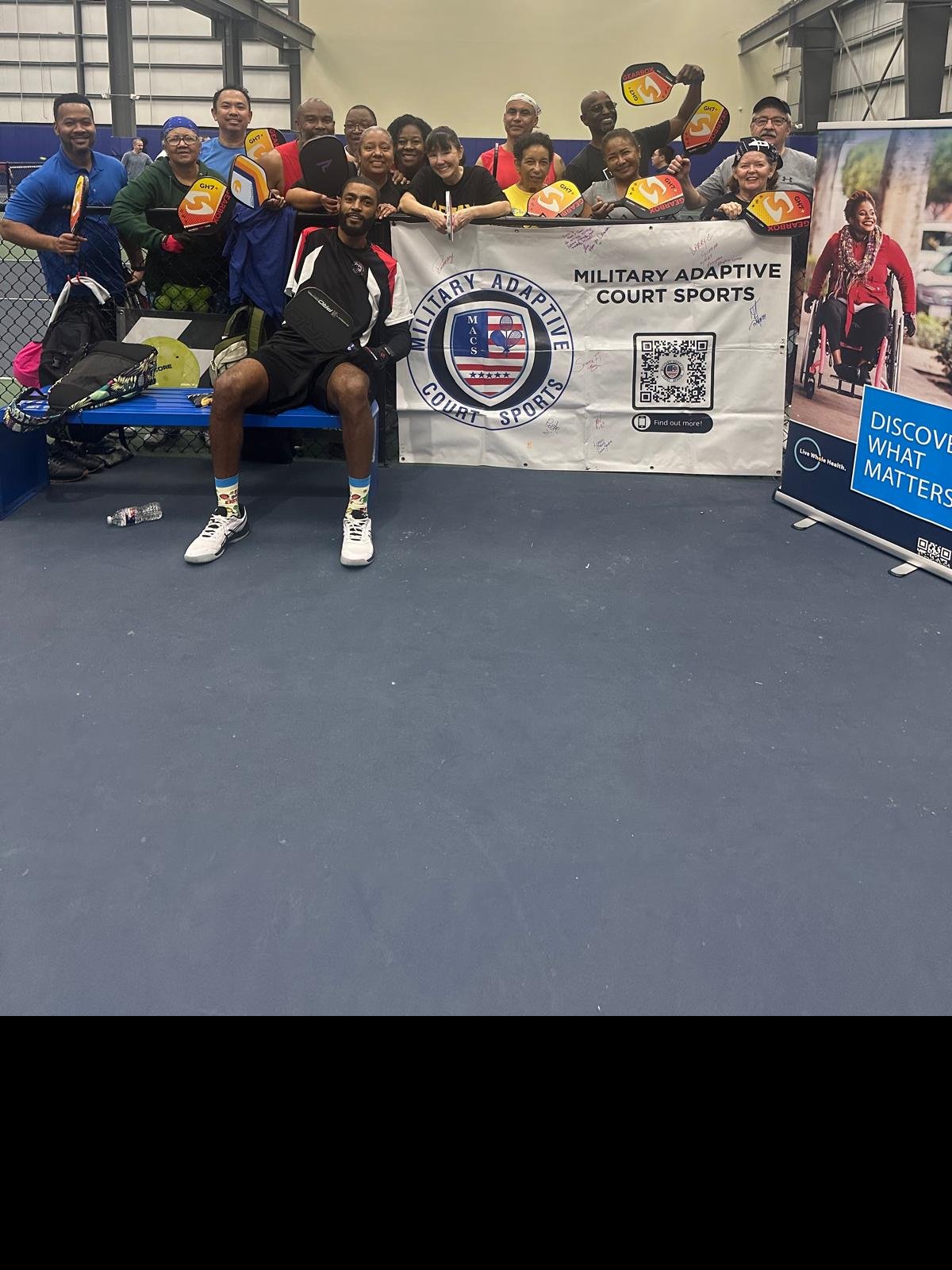
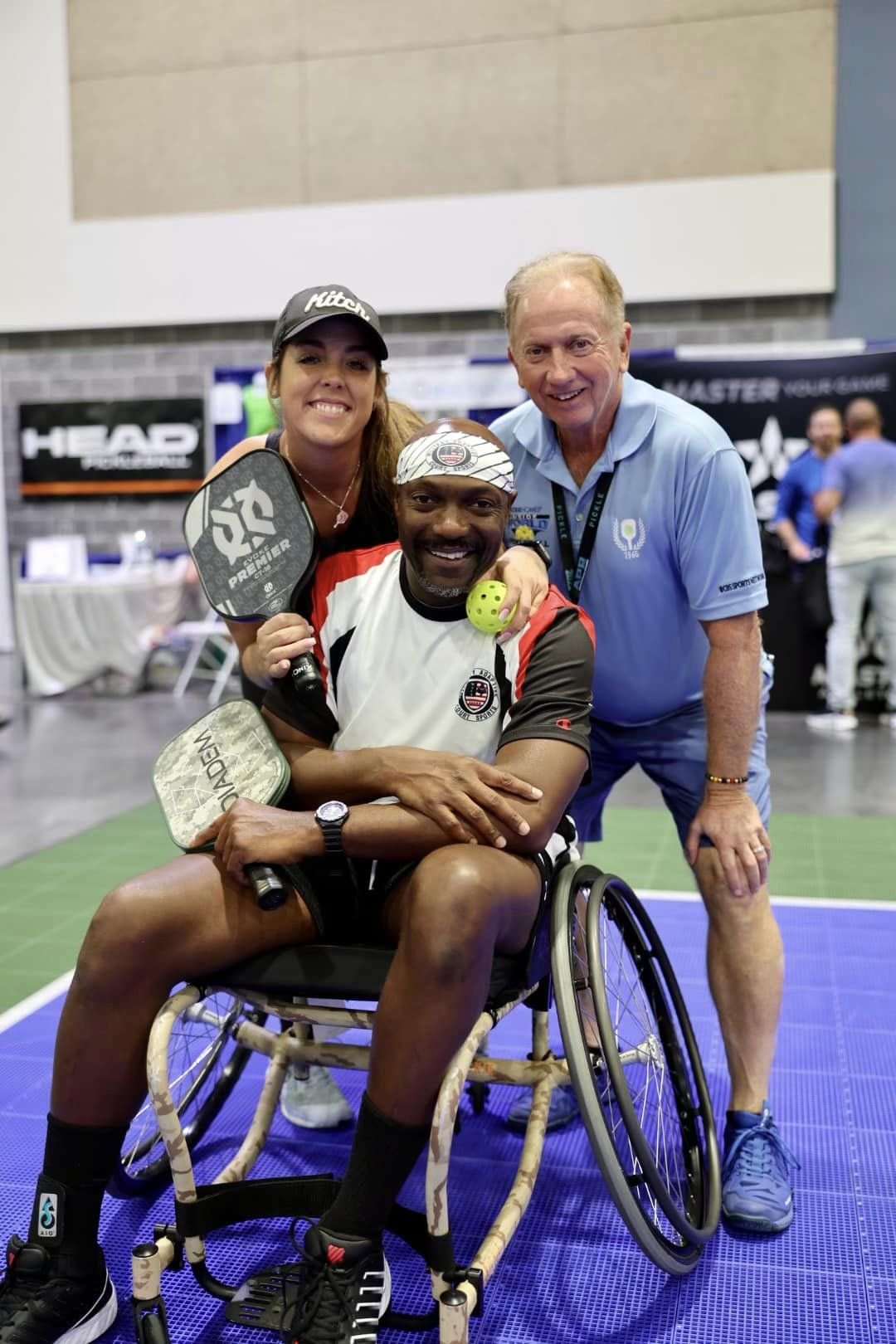
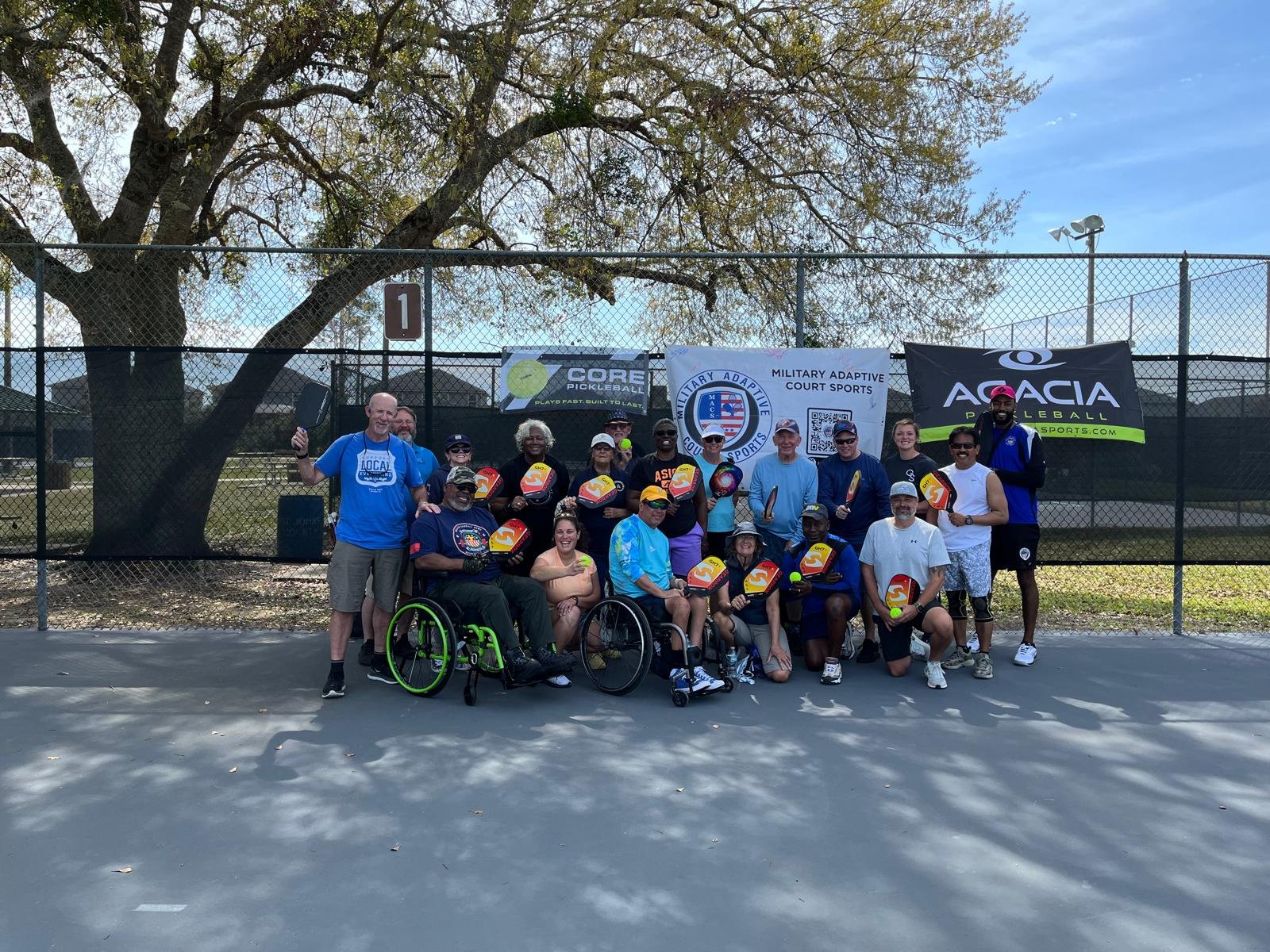
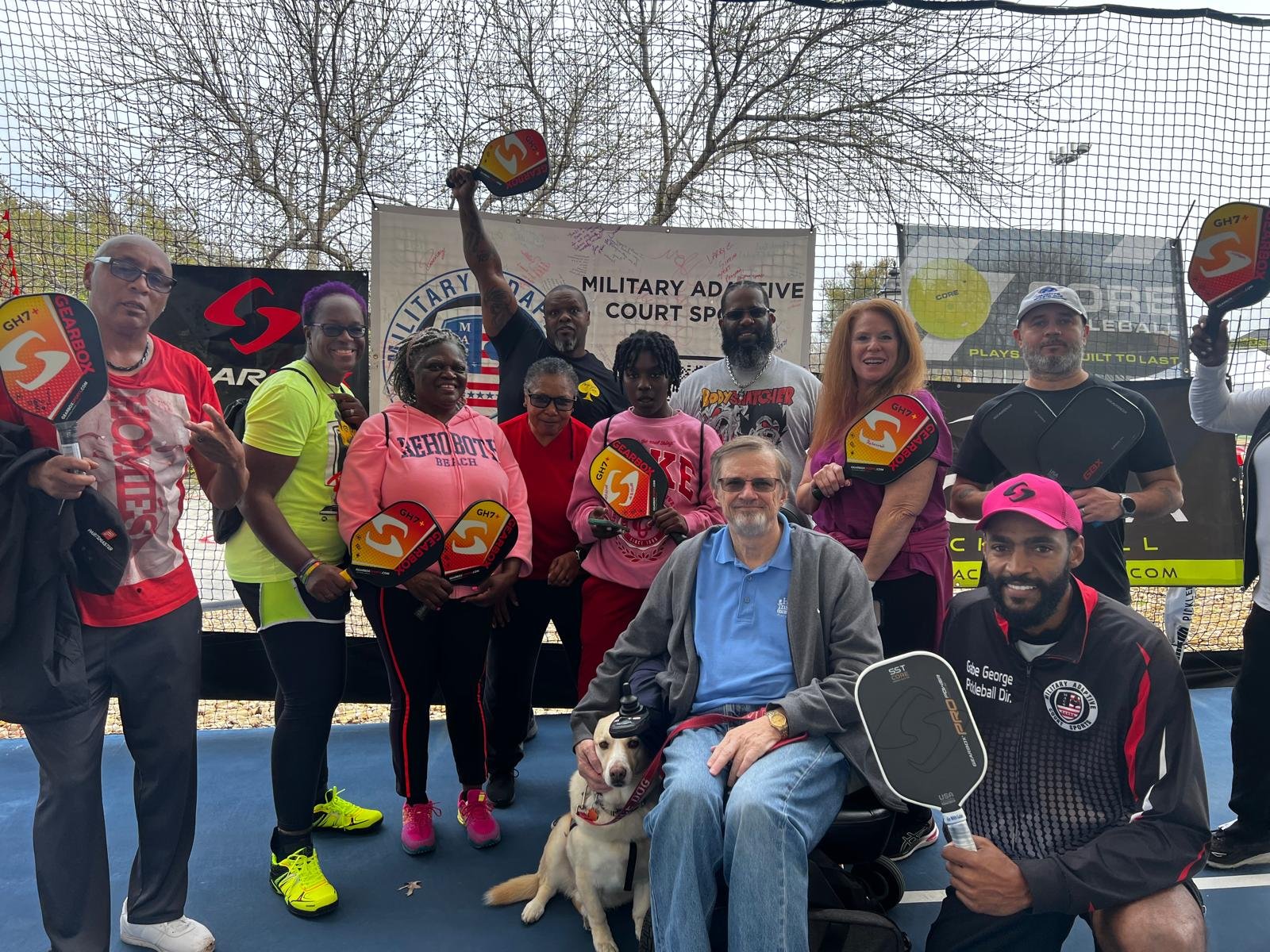
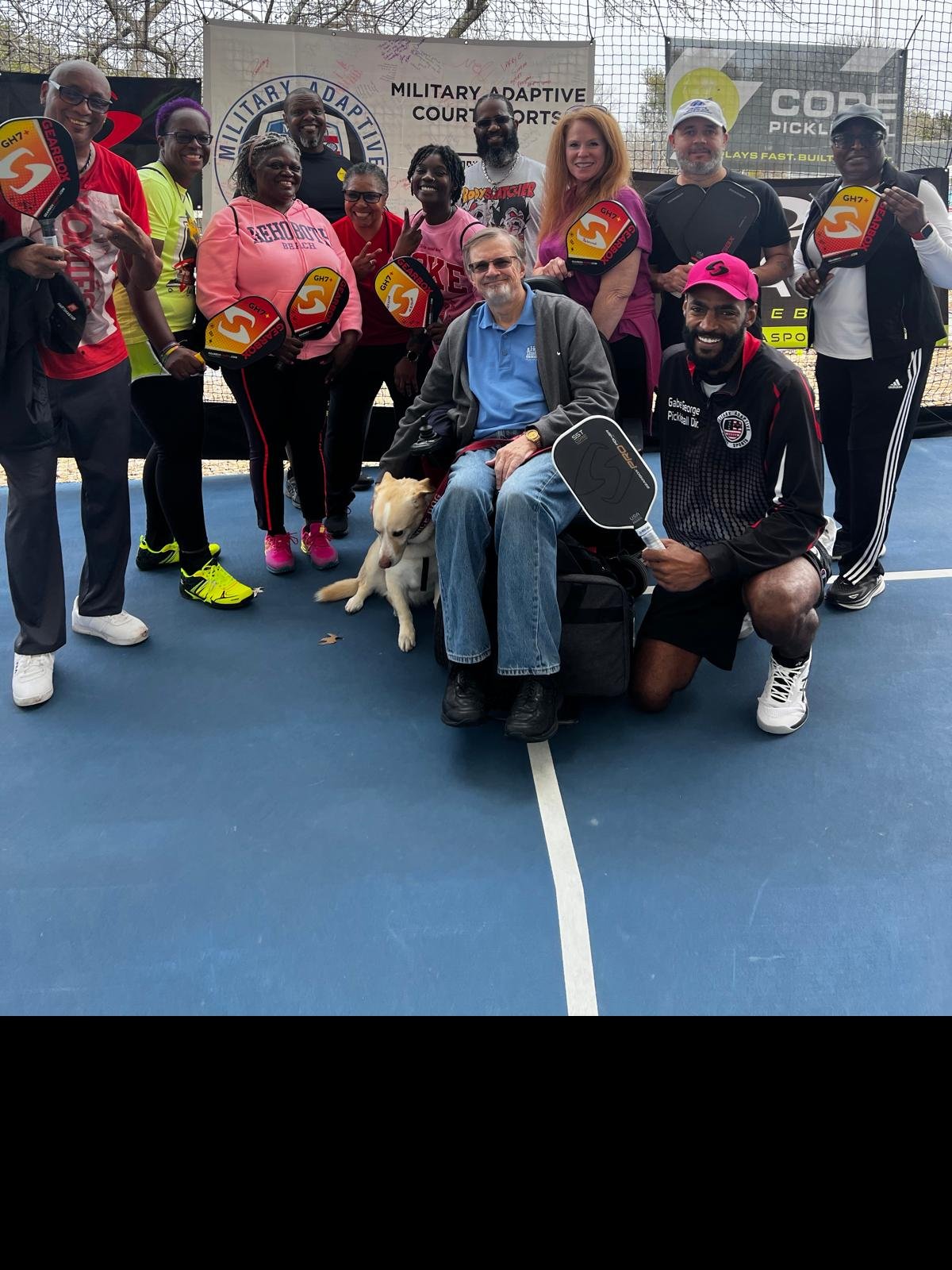

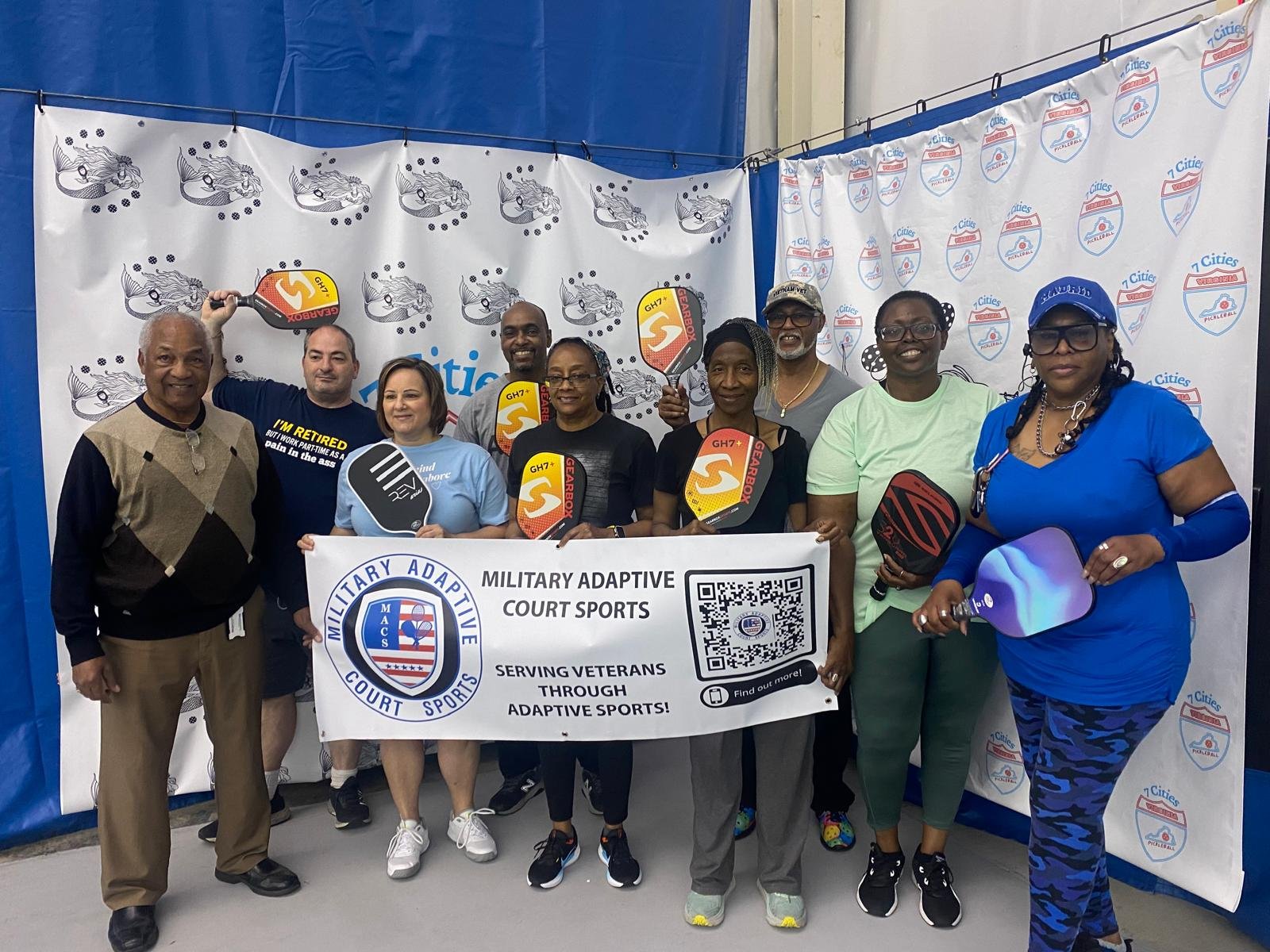
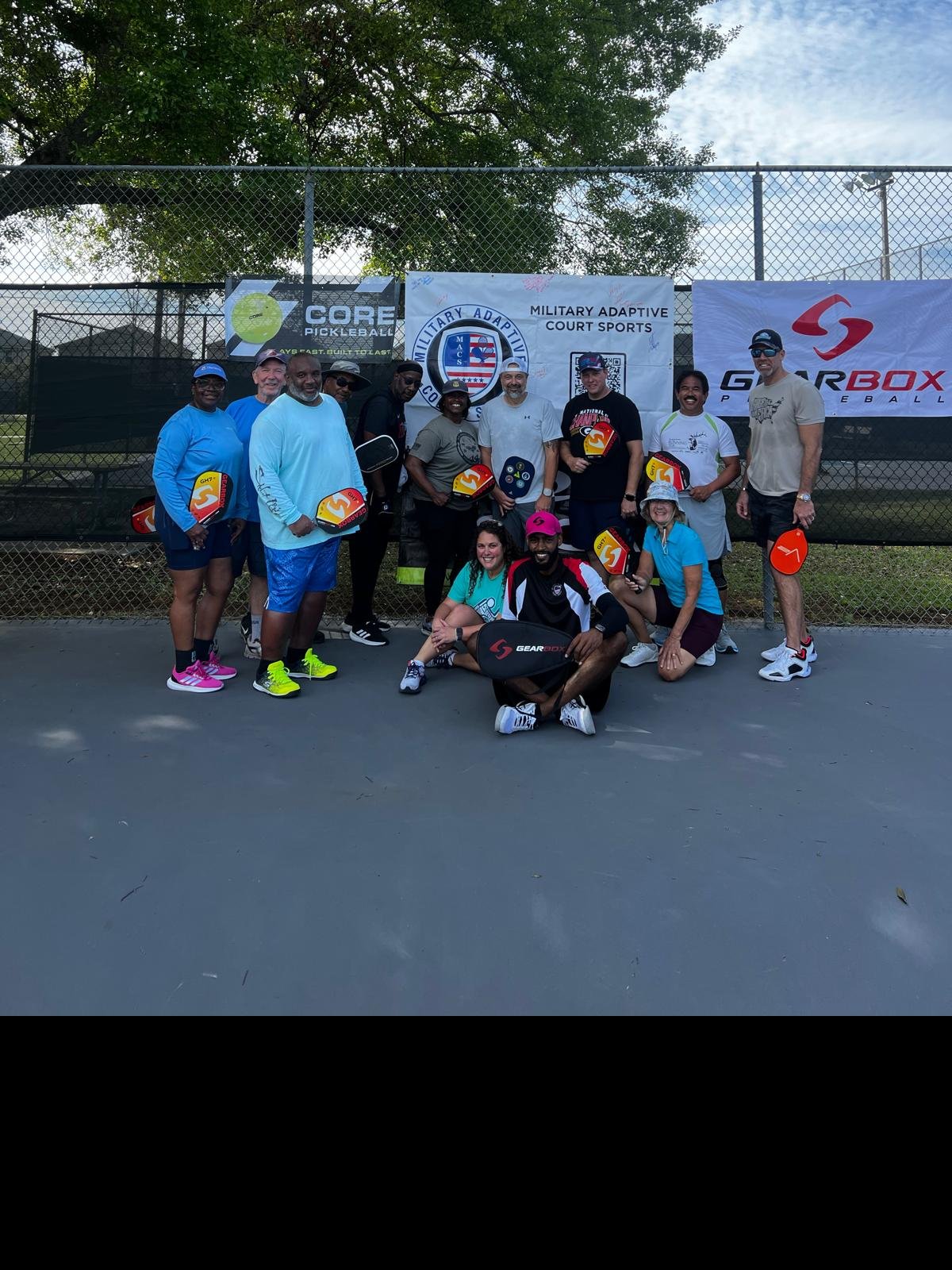
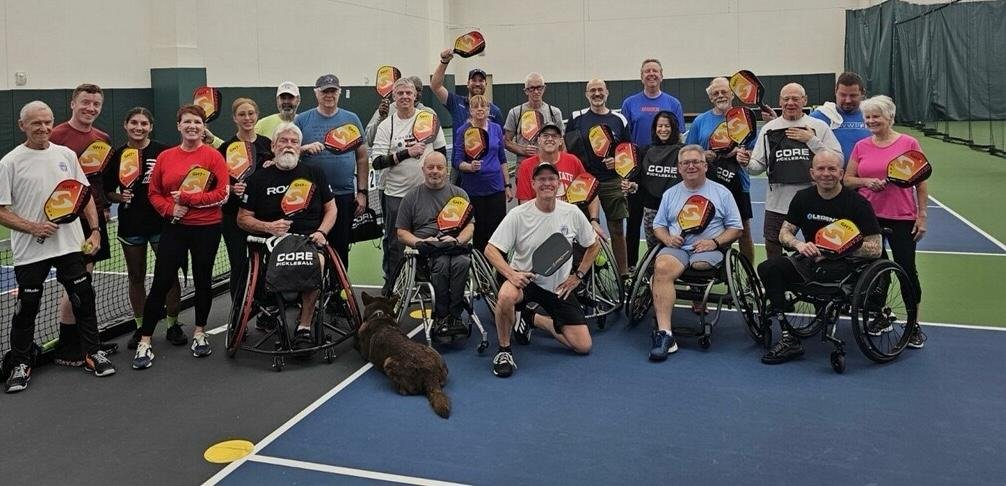
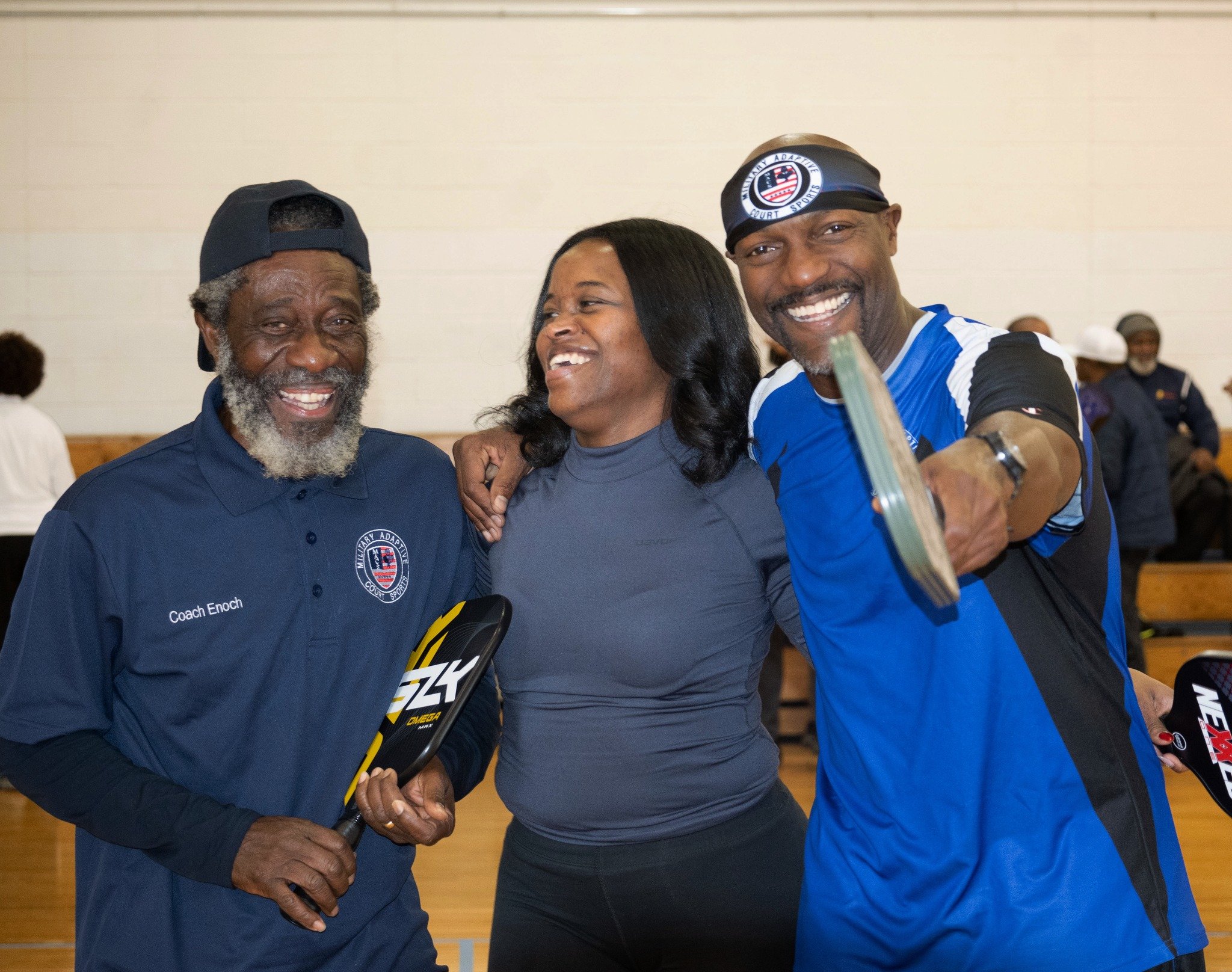
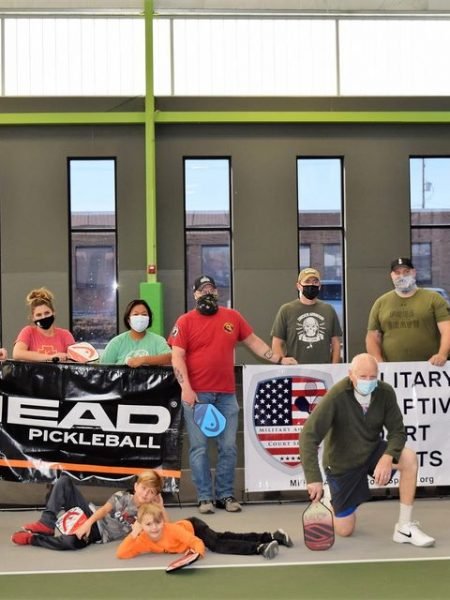
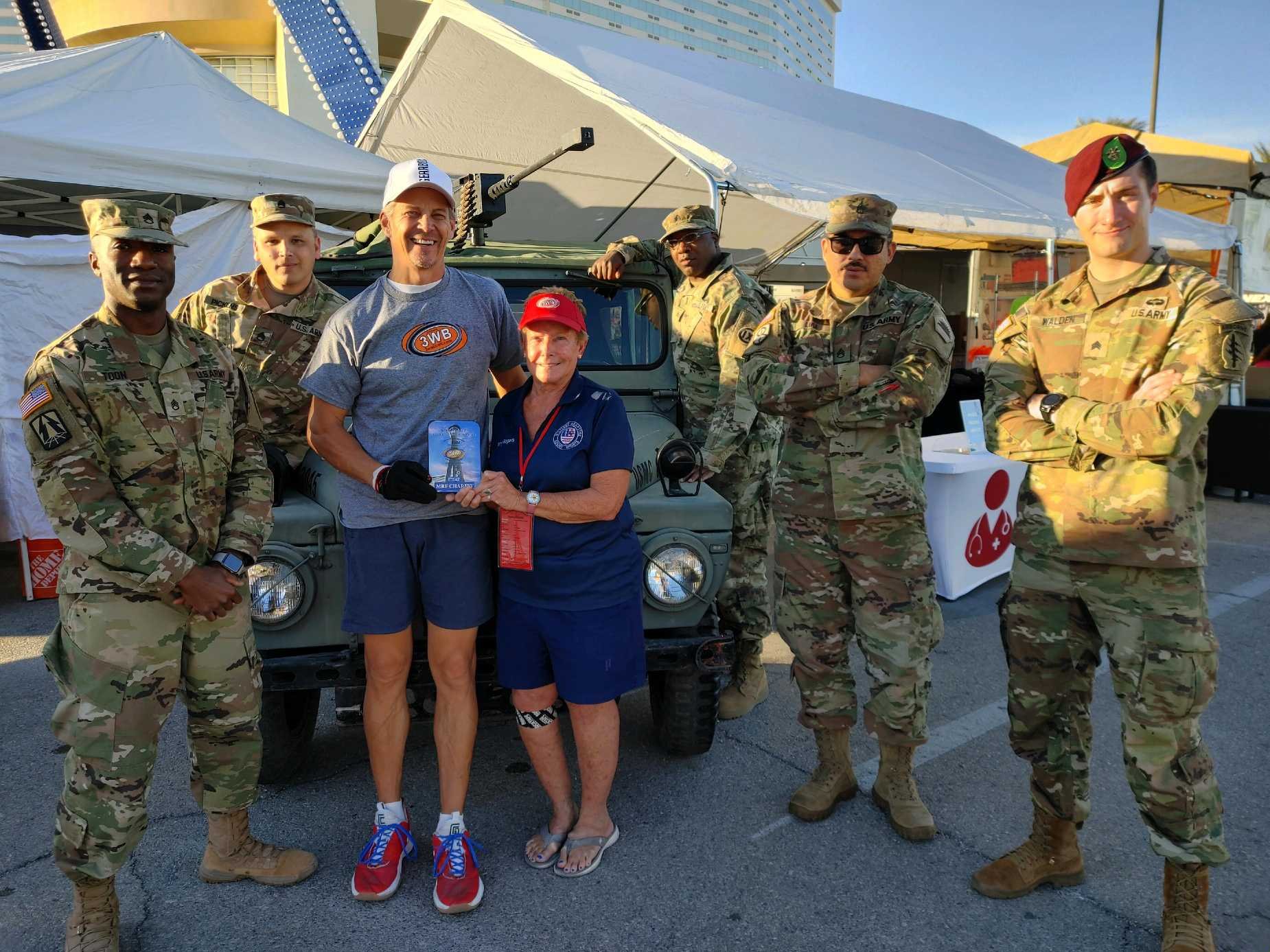
Did You Know?
Pickleball is played in over 70 countries.
Because of its large holes, the pickleball ball doesn't move nearly as fast as a tennis ball—it's only about a third of the speed.
People of ALL abilities can play!
Meet Our Volunteer Instructors
-

GABRIEL (GABE) GEORGE
JACKSONVILLE, FL (US NAVY RETIRED)
MACS Pickleball Instructor
I am a retired Navy corpsman and currently an adaptive athlete who competes in Pickleball, Paralympic Archery, sailing, and a few other adaptive sports & recreational activities. The Military Adaptive Court Sports program is a way I can share my experiences and give back to those who have served.
Clinics held at these locations:
-Fort Family Park, Jacksonville, FL
-VA Hospital Lake City, Lake City, FL
-George
-Texas
-

EARL STITT
LAS VEGAS, NV (US AIR FORCE LT. COL. RETIRED)
MACS Pickleball Instructor
I desire a volunteer position that will benefit my broad professional background and capitalize on my strong work ethic. I enjoy working with the public in a team-oriented atmosphere, but also excel in an independent environment. Working for, and with, our military and veterans is my number one desire.
2015 Grand Junction Veterans Administration – Support with Project Healing Waters, River Runners, and Pickleball, *2019 – 2020 Southern Nevada Pickleball Club – Trustee, responsible for the Veteran’s Program.
-
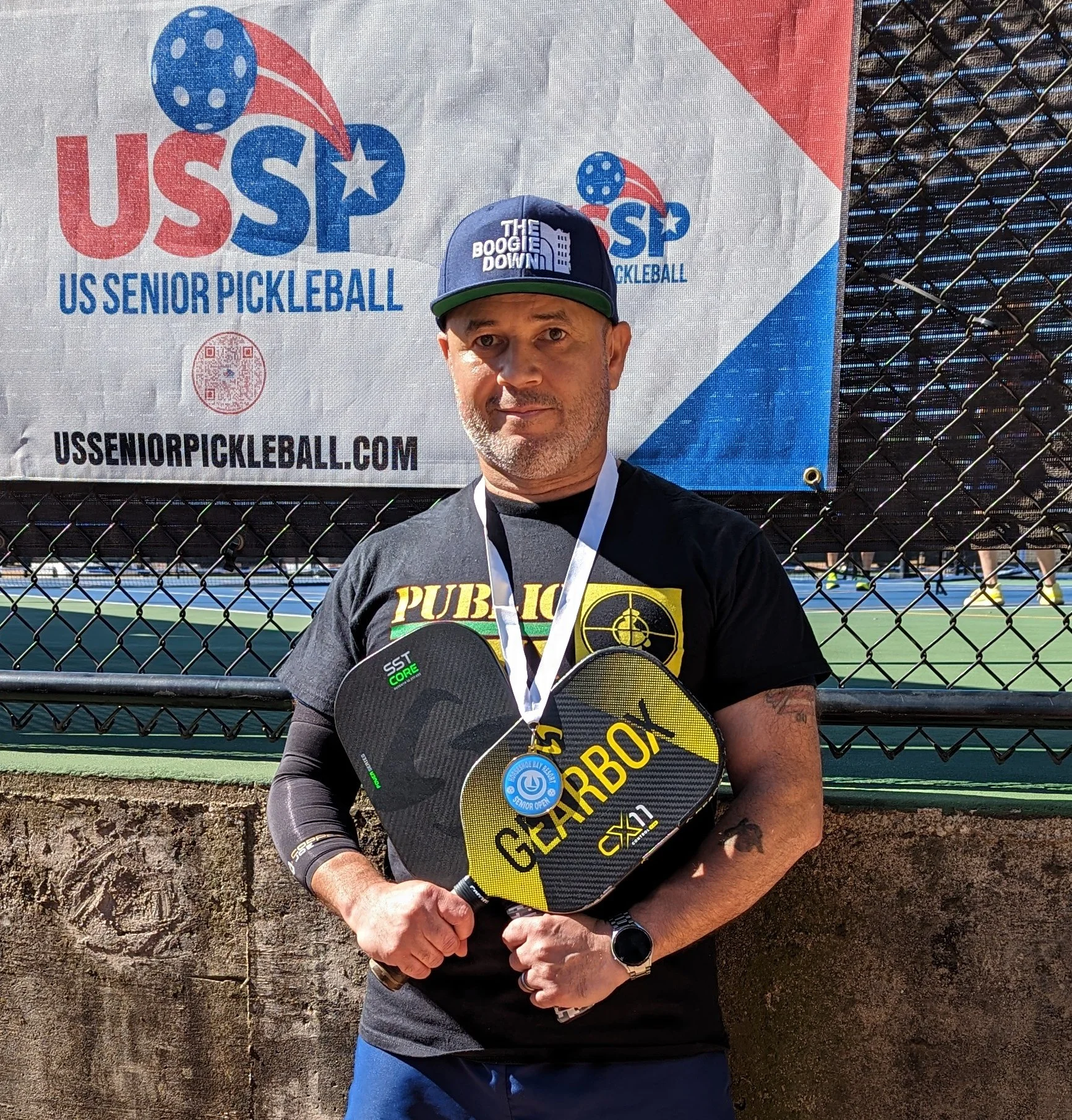
George Olivencia III, MHA
Temple, Texas (Army)
MACS Pickleball Instructor
I recently retired from the Army while attached to the Soldier Recovery Unit as a patient, during my time as a cancer patient I learned to play pickleball. After retirement, I became a certified pickleball instructor and began providing lessons to active-duty Soldiers assigned to the Soldier recovery unit for their adaptive reconditioning. I soon met Gabe and began providing a weekly adaptive pickleball session to fellow veterans in the community.
-
Mario Wright
San Antonio, Texas (Civilian) (my wife is a veteran)
MACS Pickleball Instructor
I started playing Pickleball in 2019. I fell in love with the sport, started playing tournaments across the U.S.A placing in most . I have been in a wheelchair for 15yrs now playing multiple sports. I became involved with MACS through Gabe and Steven when I met them in a Pickleball tournament in Myrtle Beach 2021, two of the nicest guys you will meet, that was one of the reasons that I wanted to get involved with MACS plus I love what they are doing for the veterans and active duty military , it's an honor to give my time and love for Pickleball back to those who risk and give their lives to keep us safe, it’s the least I can do to bring joy into their world.
-

Patricia Barney
Hattiesburg, MS (Civilian)
MACS Pickleball, Badminton, Table Tennis, Racquetball Instructor
I am a USPTA, PPR certified pickleball and tennis professional. I played tennis in high school, and then again as an adult, competing for many years in USTA leagues and tournaments. I was introduced to pickleball in 2015 and became a tennis and pickleball instructor in 2019.
I began teaching for MACS in 2021 as the New Orleans VA pickleball/badminton lead instructor. I then relocated to the Hattiesburg, MS area in 2023 and continued teaching the basics of pickleball, badminton, table tennis and racquetball to active-duty military at Camp Shelby. I have loved my work with MACS; most notably my work with wheelchair-bound veterans, one of whom won 3 bronze medals in 2 US Open Pickleball Championships in Naples, Florida.
-
Mick Tingstrom
Colorado Springs, CO - Retired Army (27 years)
MACS Pickleball Instructor
I am a Professional-level PPR Certified Pickleball Coach; 20+ years of coaching various sports and have earned numerous medals at National-level pickleball tournaments. I am also a former USMS National Champion swimmer (relay).
I love God and people, and joined MACS to help provide pickleball play sessions that are full of FUN, FITNESS, and FELLOWSHIP. Blessed to support MACS - a team that truly transforms lives!
Pickleball Sponsors
EXCLUSIVE DISCOUNT CODE: "MACS10" FOR ALL PURCHASES
